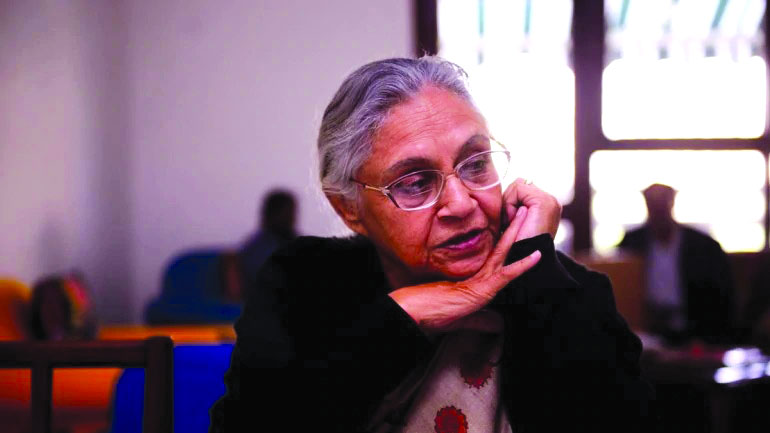The 15 years that Sheila Dikshit was prima donna of Delhi politics, this former reporter had the privileged job of covering her for 14 years for The Pioneer, first as beat reporter and then for over a decade as the head of the city reporting unit. Those were the years of the BJP grounding its feet firmly in national politics and The Pioneer was its only credible sympathiser. Under the situation, it was quite a challenge to cover the most prominent Congress leader in the national Capital.
However, contrary to the expectations, Sheila Dikshit had a great traction with the newspaper and took her criticism in right spirit. It also went to the credit of the newspaper’s editorial policy, especially its editor Chandan Mitra, that he never approved of negativism in reporting and encouraged development related reports which more often than not ended up giving credit to Sheila Dikshit.
This did not endear Mitra and his team to the Delhi State BJP leadership. That’s another story to be told another day but Sheila Dikshit did come in under lot of criticism within her own party for encouraging what was perceived to be an anti-Congress paper. “Dekho BJP wale aa gaye (see the BJP people have come),” she would say in zest whenever I entered her office. It’s another matter that the city BJPwalas always treated us with suspicion.
Despite we being the ‘BJPwalas’, and also being at times very virulent in our criticism, people looked up to The Pioneer for inside stories on Delhi Government and Delhi Congress. When dissidence broke in Delhi Congress, within a year of her taking over, she disappeared from public, saying she was down with viral fever. She broke her silence in an interview to us, which was headlined, “Clash of Cultures in Delhi”. She loved the headline, as much her rivals hated it. For them we were soon to be christened as ‘Sheila’s men’.
What an unenviable situation, she called us ‘BJPwalas’, her rivals in Congress saw us as her propogandist and Delhi BJP leaders suspected us of ‘infidelity’. Once I shared our trauma with her, and said she would have to pay a price for it. “Ask for it,” she had said. “The day you decide to resign, The Pioneer should break the story,” I had said. “That’s not happening,” she smiled but ensured The Pioneer became the newspaper to break the story of her son, Sandeep Dikshit joining politics. The story was headlined, “CM’s son to rise from the East”.
The most challenging task of maintaining a workable relationship with her was when we went to town against the Bus Rapid Transport (BRT) corridor, a project very close to her. She took the criticism in the right spirit and even took a ride in the bus and contested our claim. I do not know how many political leaders in the country would have this kind of a broad mind.
She was a protector of media’s freedom. She seldom used the stick of cutting on Government advertisements to browbeat us. Once around 11 in the morning I received a call from her. She was furious for we having run a copy on the MCD dismemberment file having got lost in the Rashtrapati Bhawan. “You people write whatever you wish about my Government but how can you say this for the Rashtrapati Bhawan,” she had fumed. One did not have the heart to tell her that the information had been shared by her Chief Secretary.
The story did not end there. She forgot to switch off the cordless phone and one overheard one of her aides suggesting that our advertisements should be stopped. She had angrily countered, “Did I ask for an advise? I have spoken to Sidharth, if the need be, I will speak to Chandan. Aap apna kaam kijiye (you please do your work).”
That was Sheila Dikshit, a true democrat, an able administrator and a great friend of her critics. She loved disarming them with her charm and affection. As Mitra rightly wrote, “They don’t make political leaders like her anymore.”
(The writer is former Associate Editor of The Pioneer and author of the book Delhi Political: 1947-2013)

























